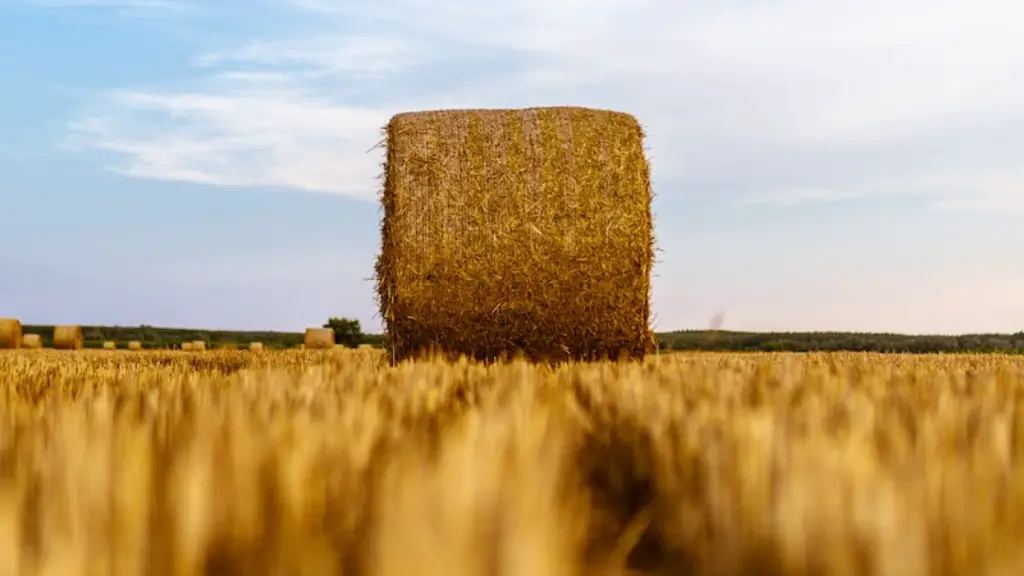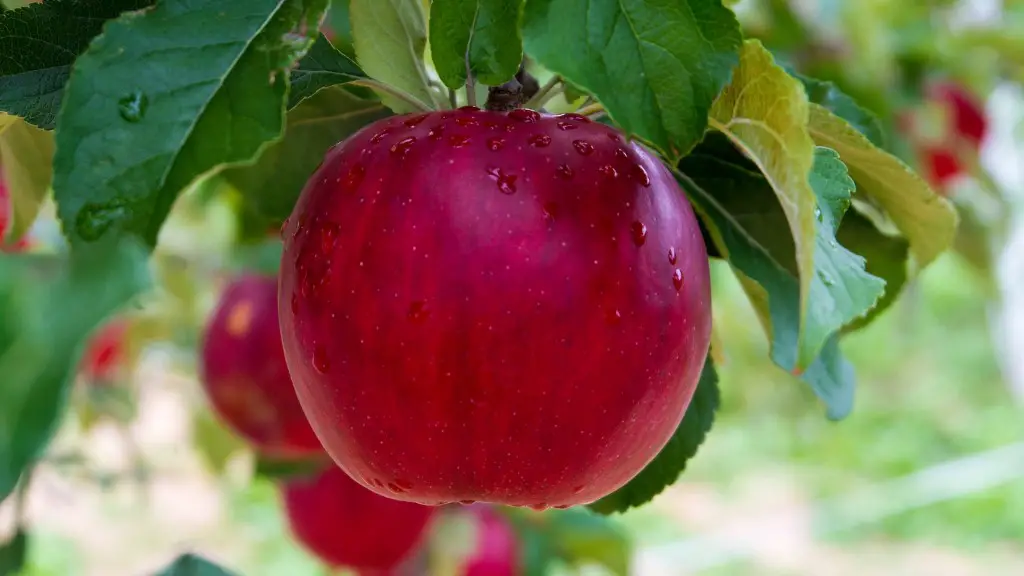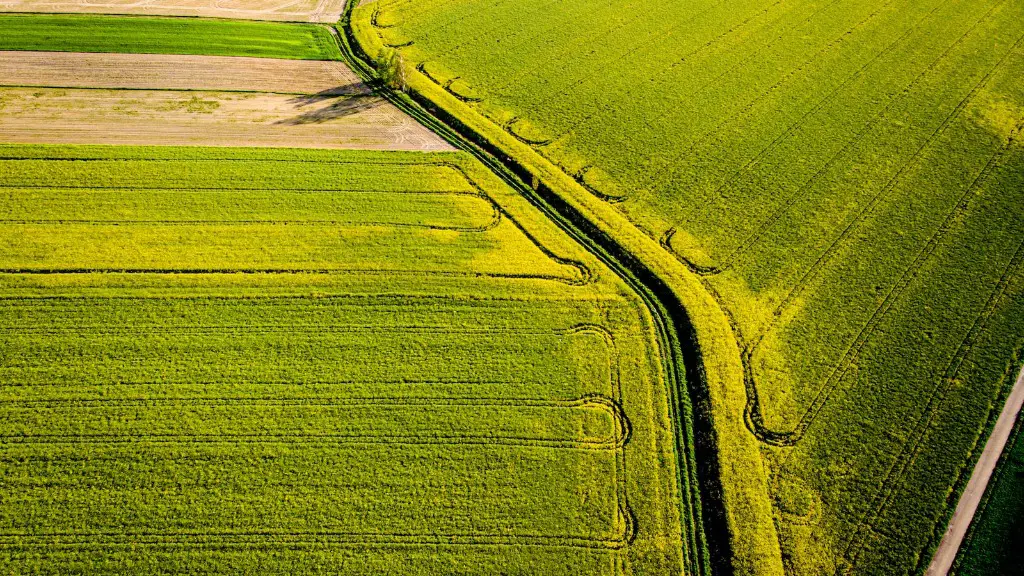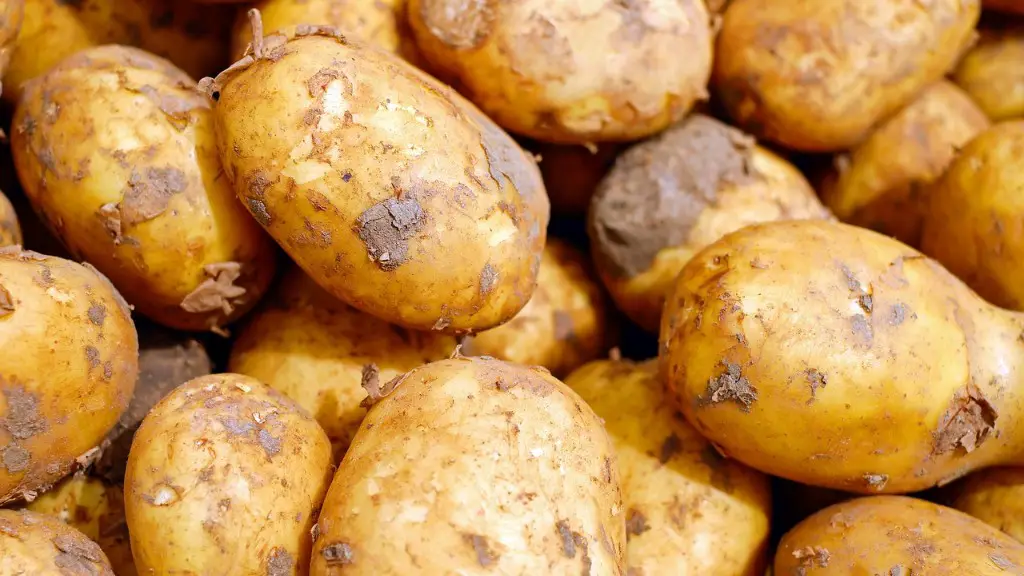The United States Department of Agriculture (USDA) has released a new bill that would provide financial assistance to farmers and ranchers who suffer losses due to drought, flooding, or other natural disasters. The new bill, which is called the Agriculture Risk Coverage (ARC) and Supplemental Coverage Option (SCO) program, would provide financial assistance to farmers and ranchers who are unable to produce a minimum amount of crop due to natural disasters. This program would help ensure that farmers and ranchers are able to continue operating their businesses and provide food for the American people.
There is no definitive answer to this question as the new agriculture bill has not yet been released. However, it is believed that the bill will focus on improving the efficiency of the agricultural industry and developing new technologies to help farmers improve their yields.
What will be in the new Farm Bill?
The Farm Service Agency (FSA) is a federal agency that provides farm payments when crop prices or revenues decline for major commodity crops, including wheat, corn, soybeans, peanuts, and rice. The FSA also includes disaster programs to help livestock and tree fruit producers manage production losses due to natural disasters.
The Farm Bill contains a number of provisions that aim to improve water resources through conservation programs like the Conservation Reserve Program (CRP). The bill gradually increases the acreage cap for CRP to 27 million by 2023 and authorizes two new pilot programs through CRP that prioritize practices that help benefit water resources. These pilot programs will help to improve water quality and quantity in the United States by promoting conservation practices that target water resources.
Will there be a 2023 Farm Bill
The current Farm Bill is set to expire on September 30, 2023, and the US Congress is working to draft a new, five-year Farm Bill. Congressional hearings are underway to determine public and private stakeholders’ priorities for the reauthorization. The new Farm Bill will likely include provisions on funding for agriculture programs, food assistance programs, and rural development programs.
The Whole Farm Revenue Protection plan of insurance now defines Beginning Farmer or Rancher as one who has not held an insurable interest for more than 10 years, an increase from five years. This change will allow more farmers and ranchers to be eligible for this type of insurance.
What are the benefits of new farmers bill?
The new bill encourages farmers to interstate trade (interstate trade), so that farmers will be able to sell their products freely in another state APMCs. Currently, APMCs charge a market fee of 1 percent to 10 percent on various goods, but now no state or central tax will be levied on trade outside the state markets. This will benefit farmers as they will be able to sell their products at a higher price.
The disadvantages of this act are that it would result in loss of revenues for states as they would be barred from the collection of “mandi fees” if the farmer started selling their produce outside APMC markets. This would also lead to a decrease in the quality of produce as there would be no regulation of the same. Moreover, the act would also lead to a concentration of power in the hands of a few big players in the market.
What will happen to the single farm payment?
Separating farm payments from land use is intended to make things simpler for farmers and the RPA. The government is proposing to replace the Basic Payment Scheme with delinked payments by 2024 and to phase them out completely by 2027. This will mean that farmers will no longer have to farm the land to receive the payments.
The new farm bills have caused a lot of concern for farmers who feel that they will be open to unfair competition from big companies. This makes agriculture much riskier and inefficient with regard to both input and output management.
What does the farm bill protect
The United States Department of Agriculture (USDA) is responsible for ensuring food security for the country. The Farm Bill is a funding bill that Congress passes every five years to reauthorize and fund agricultural and food programs. The 2018 Farm Bill was passed in December 2018 and authorized programs and spending for the five-year period from 2019 to 2023. The 2023 Farm Bill will authorize programs and spending for the five-year period from 2024 to 2028.
The Farm Bill includes programs that provide mandatory and discretionary funding to a number of everyday programs and functions to support food security, and in turn national security, for the US. These programs include, but are not limited to, the Supplemental Nutrition Assistance Program (SNAP), the National School Breakfast Program (NSBP), the Child and Adult Care Food Program (CACFP), and the Special Supplemental Nutrition Program for Women, Infants, and Children (WIC).
This is a very alarming statistic. If we do not take steps to protect our topsoil, we could be in serious trouble within a few decades. We need to be much more careful about how we use and manage our land resources.
How many years of farming do we have left?
The UN’s Food and Agricultural Organization has warned that if soil erosion continues at its current pace, the world could run out of topsoil in 60 years. This is a serious problem as soils are the basis of life. Maria-Helena Semedo, the Food and Agriculture Organization’s deputy director general of natural resources, has said that we need to take action to protect our soils. We need to reduce soil erosion by using more sustainable land management practices. We also need to invest in soil conservation and rehabilitation.
This is a startling projection, and it should be a wake-up call for everyone. We need to do something about climate change, and we need to do it now.
What are 3 bills passed for farmers
The following note discusses food security and the condition of farmers in India. It also briefly covers the role of agriculture in the state, union, and concurrent lists, as well as election manifesto promises and the farm acts.
Food security is a major concern in India. Over half of the population is employed in agriculture, and the sector is rife with problems. Farmers are often not able to get adequate prices for their produce, and many are trapped in a cycle of debt. The government has made some progress in terms of providing support to farmers, but much more needs to be done.
The issue of food security is closely linked to the condition of farmers in India. Poorly functioning markets, lack of access to credit, and limited technological advances have all contributed to the plight of farmers in India. The government has taken some steps to address these issues, but more needs to be done.
Agriculture is a key sector in India, and the role it plays in the state, union, and concurrent lists is important. The sector is regulated by the central government, but states also have a role to play in terms of promotion and development. The farm acts passed by the government in recent years have been controversial, and their impact is still being felt by
The government pays farmers not to grow crops because they want to control the agricultural market. By doing this, they can ensure that farmers can always sell their crops for a fair price. This helps to stabilize the agricultural industry and keep prices reasonable for consumers.
Why are farmers not happy with the bill?
There is no mechanism for price fixation in the Price Assurance Bill, which could lead to farmer exploitation by private corporate houses. The bill only offers protection to farmers against price exploitation, but does not prescribe the mechanism for price fixation. This is an apprehension that needs to be addressed.
The United States Department of Agriculture (USDA) was established in 1862 in order to address the issues of food insecurity and poverty during the Civil War. The department’s three original goals were to keep food prices fair for farmers and consumers, ensure an adequate food supply, and protect and sustain the country’s vital natural resources. These goals were designed to respond to the economic and environmental crises of the Great Depression and the Dust Bowl.
Over the years, the USDA has evolved and changed in order to meet the needs of a changing country. However, its original goals remain the same. The USDA continues to work to keep food prices fair, ensure an adequate food supply, and protect and sustain the country’s natural resources.
What was farmers bill simple words
The three farm bills passed by the Indian Parliament on September 27 will allow farmers to sell their produce to anyone, including companies, under written contracts. This will give farmers more flexibility in choosing buyers and setting prices for their products. The bills will also help to streamline the process of selling and storing agricultural products, making it easier for farmers to do business.
If the current farm bill legislation expires or a new farm bill is not passed and/or permanent legislation is not appealed, farm policy would revert back to permanent legislation. This would include parity pricing, acreage allotments, and marketing quotas. These provisions would likely have a negative impact on the agricultural industry, as they would decrease production and raise prices for consumers.
Conclusion
The Agriculture Bill was introduced to the House of Commons on 12 September 2018. It is the first Bill to be introduced to Parliament following the UK’s withdrawal from the European Union.
The Bill sets out a new framework for agricultural support in England after the UK leaves the EU. It will provide a safety net for farmers and farm businesses as we leave the EU and transition to a new system.
The Bill will also support our ambition to be a world leader in food and farming, improving our environment and animal welfare standards.
The new agriculture bill is a huge victory for farmers and the agricultural industry. It provides much needed support and investment in the sector, and will help to create jobs and boost the economy. It is a great step forward for the country, and will help to ensure our food security for years to come.





